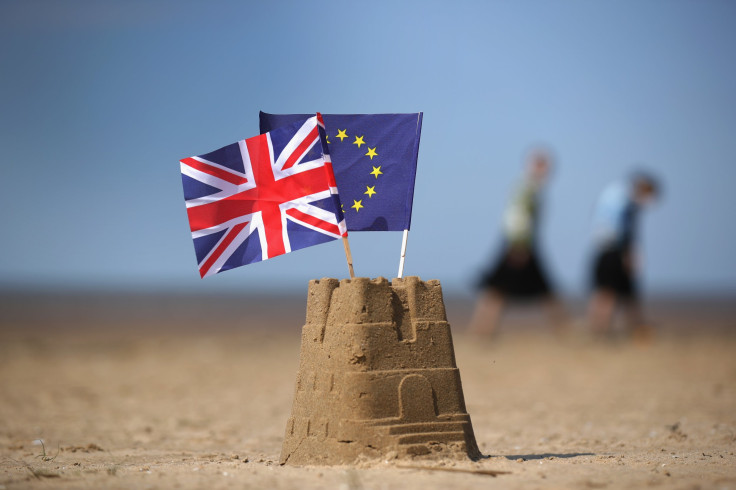Brexit: UK To Trigger Article 50 In March 2017, Leave EU By 2019, PM Theresa May Says

Britain will officially begin the Brexit process towards the end of March next year, the United Kingdom’s Prime Minister Theresa May confirmed with the BBC. Britain will officially leave the European Union at the end of this two-year process.
May said the country will officially trigger Article 50 of the Lisbon Treaty in March 2017. Article 50 governs how a member country leaves the 27 member bloc, excluding the U.K.
“This is about delivering for the British people, and this is not just about leaving the EU, it’s about that essential question of the trust people have in their politicians. The people have spoken, we will deliver on that,” she reportedly said. “We’ll be starting the negotiations once we’ve triggered article 50, but I think it’s important to get the right deal for the British people.”
May added in her interview that the next Queen’s speech will focus on a “Great Repeal Bill” that will overturn the act that led to the U.K. joining the EU The Queen’s speech delivered at the State Opening of Parliament marks the official start of the parliamentary year and sets out the parliament’s agenda for that year.
The “Great Repeal Bill” will incorporate all the EU laws in British law once the country leaves the union. This bill will replace the European Communities Act 1972.
“It is important for the U.K. and Europe as a whole to do this in the best possible way so there is a smooth transition [for the U.K.] away from the EU,” May said.
May said earlier that the new bill will mark “the first stage in the U.K. becoming a sovereign and independent country once again. It will return power and authority to the elected institutions of our country.”
“It means that the authority of EU law in Britain will end,” she added.
May will be speaking at the Conservative party conference in Birmingham with three Cabinet ministers involved with the Brexit process – Brexit secretary David Davis, U.K.’s Foreign Secretary Boris Johnson and Secretary of State for International Trade Liam Fox.
“EU law will be transposed into domestic law, wherever practical, on exit day,” Davis will reportedly say in his speech. “It will be for elected politicians here to make the changes to reflect the outcome of our negotiation and our exit. That is what people voted for: power and authority residing once again with the sovereign institutions of our own country.”
In June, a referendum was held in the U.K. in which the country voted to leave the E.U. Following this result, then Prime Minister David Cameron announced that he will step down and Theresa May took his place in July.
© Copyright IBTimes 2025. All rights reserved.





















